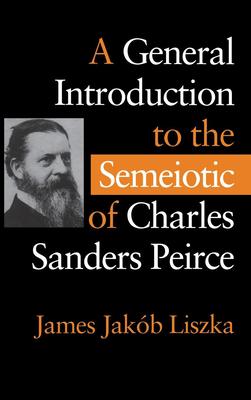"This definitive text is the single best work on Peirce's semeiotic (as Peirce would have spelled it) allowing scholars to extrapolate beyond Peirce or to apply him to new areas . . ." --Society for the Advancement of American Philosophy Newsletter
". . . indispensable introduction to Peirce's semiotics." --Teaching Philosophy
"Both for students new to Peirce and for the advanced student, this is an excellent and unique reference book. It should be available in libraries at all . . . colleges and universities." --Choice
"The best and most balanced full account of Peirce's semiotic which contributes not only to semiotics but to philosophy. Liszka's book is the sourcebook for scholars in general." --Nathan Houser
Although 19th-century philosopher and scientist Charles Sanders Peirce was a prolific writer, he never published his work on signs in any organized fashion, making it difficult to grasp the scope of his thought. In this book, Liszka presents a systematic and comprehensive acount of Peirce's theory, including the role of semiotic in the system of sciences, with a detailed analysis of its three main branches--grammar, critical logic, and universal rhetoric.

A General Introduction to the Semiotic of Charles Sanders Peirce
"This definitive text is the single best work on Peirce's semeiotic (as Peirce would have spelled it) allowing scholars to extrapolate beyond Peirce or to apply him to new areas . . ." --Society for the Advancement of American Philosophy Newsletter
". . . indispensable introduction to Peirce's semiotics." --Teaching Philosophy
"Both for students new to Peirce and for the advanced student, this is an excellent and unique reference book. It should be available in libraries at all . . . colleges and universities." --Choice
"The best and most balanced full account of Peirce's semiotic which contributes not only to semiotics but to philosophy. Liszka's book is the sourcebook for scholars in general." --Nathan Houser
Although 19th-century philosopher and scientist Charles Sanders Peirce was a prolific writer, he never published his work on signs in any organized fashion, making it difficult to grasp the scope of his thought. In this book, Liszka presents a systematic and comprehensive acount of Peirce's theory, including the role of semiotic in the system of sciences, with a detailed analysis of its three main branches--grammar, critical logic, and universal rhetoric.